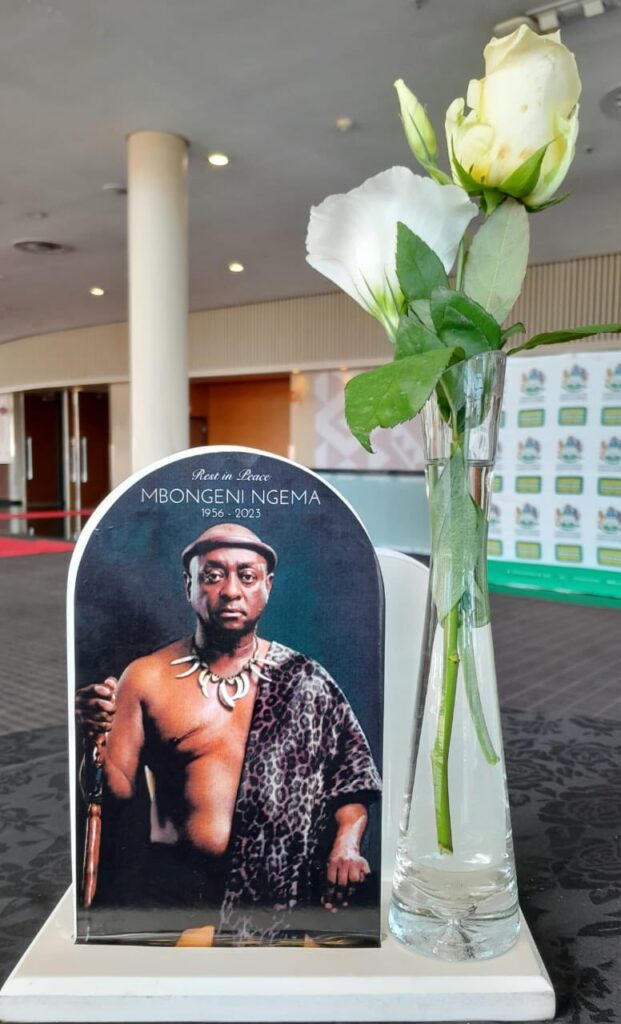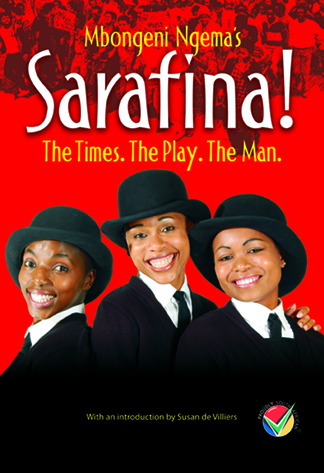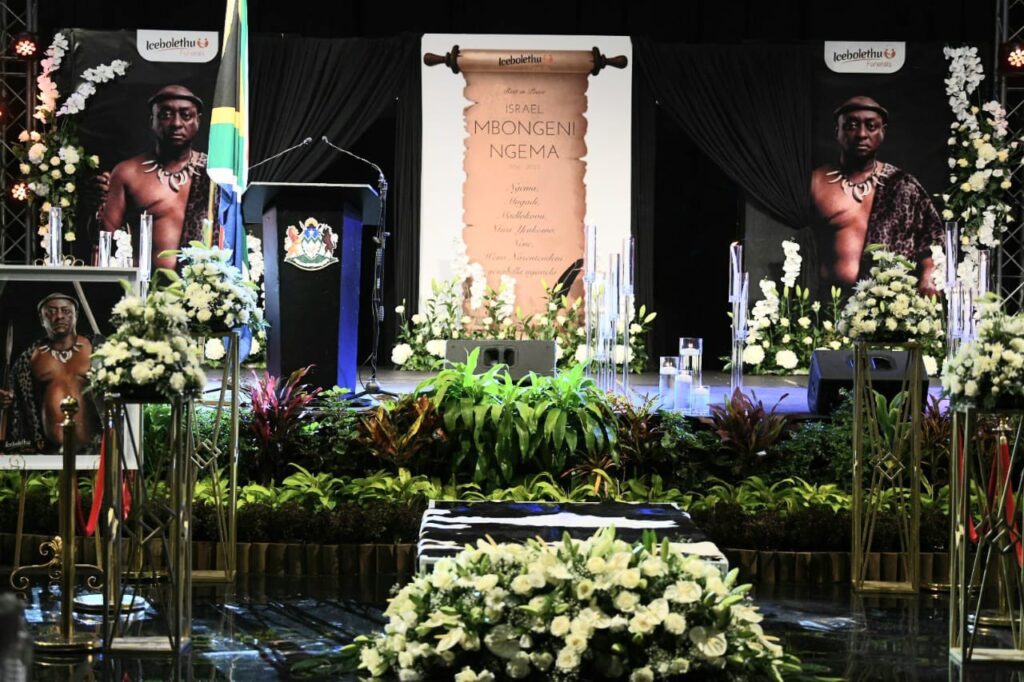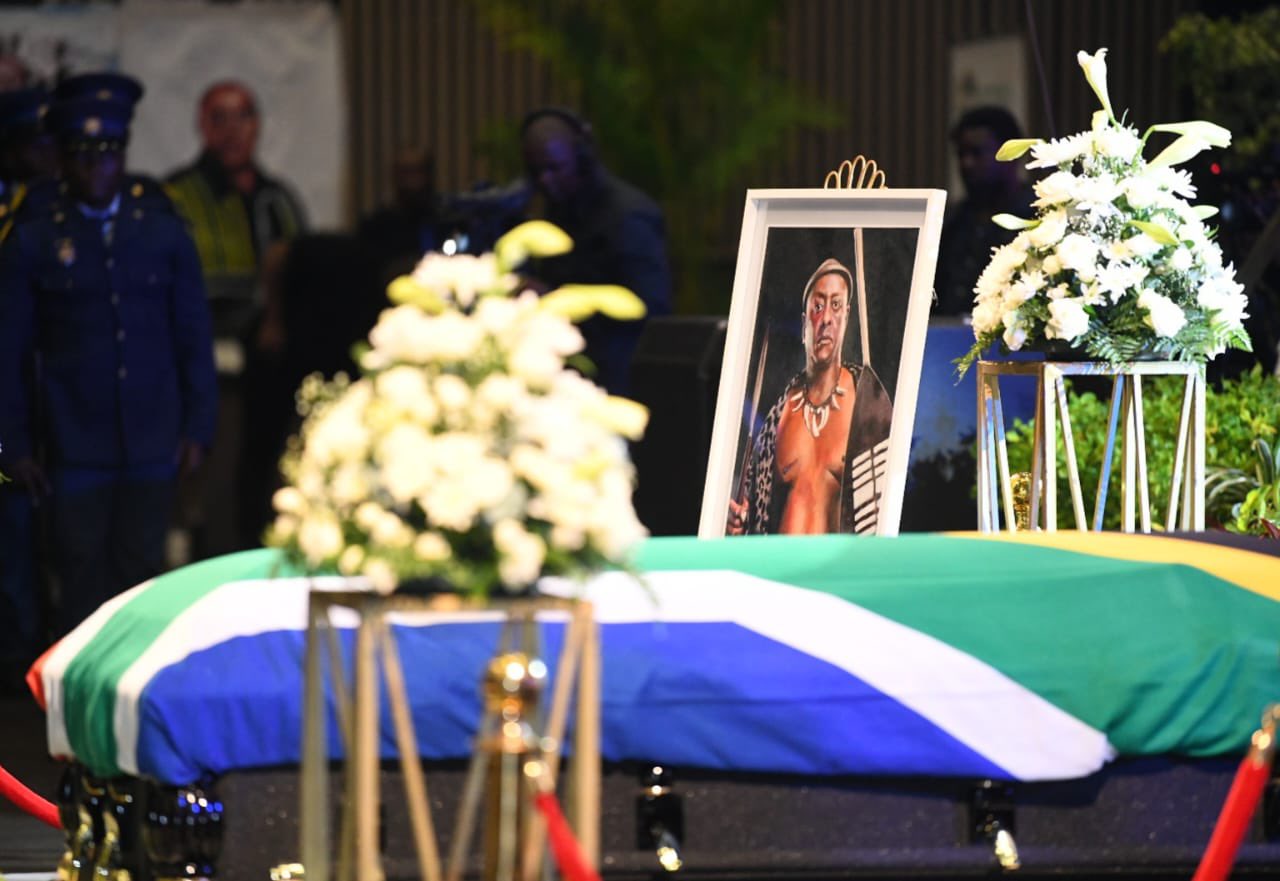Renowned playwright and composer Mbongeni Ngema’s recent passing has cast a somber reflection across the artistic community, leaving an enduring legacy for those who admired his unwavering commitment to justice. Mokgadi Mogy Mashako pays tribute to the fallen legend
Ngema, the creative force behind groundbreaking productions like Woza Albert, Asinamali, and the iconic musical Sarafina, tragically met his demise on 27 December 2023, in a head-on collision while returning from a funeral in the Eastern Cape province.

Despite the tragedy, Hamilton Dhlamini, an award-winning actor and director, reflects on Ngema’s life with admiration, highlighting his fearlessness as a producer, playwright, actor, and composer who fearlessly brought the painful realities of oppression to global attention.
Dhlamini, deeply moved by Ngema’s 1981 play Woza Albert, commends the production for not only opening his eyes and ears but also sparking a profound curiosity about his country’s history and democratic journey.
“Woza Albert opened my eyes and ears. It made me curious and gave the urge to learn and know more about my country…what happened, what is happening currently, and what will happen if we place the wrong vote in our democratic election,” Dhlamini said.

Ngema’s influence extended beyond the theatrical stage, becoming a hero to Dhlamini and others who viewed him as a symbol of sacrifice for freedom.
“Ngema stood alone and was prepared to die for us to be free. He is our Jesus Christ (Morena). May his soul continue to fight for justice and freedom for black people,” Dhlamini declared.
The Market Theatre, founded in 1976 as one of the few racially integrated venues during apartheid, symbolises Ngema’s connection to the struggle.
Woza Albert, an anti-apartheid protest piece, written and performed by Percy Mtwa and Ngema, became a transformative force in South African theatre.
Theatre critic Temple Hauptfleisch noted the overwhelmingly positive response to Woza Albert, describing it as “inspired and inspiring” and acknowledging its pivotal role in shaping South African theatre.
Dlhamini remains dedicated to staging the play with various actors, underscoring its continued relevance to contemporary South Africa.
Ngema’s works continued to echo themes related to the challenges of the apartheid era, addressing widespread poverty, suppression, and political marginalization. In a moving revelation during one of his final interviews on the King David podcast, Ngema shared that the inspiration for the song, Freedom is Coming Tomorrow, came from an interaction with Winnie Madikizela Mandela.

This interaction, set against the backdrop of a youth’s funeral during apartheid, left an unforgettable mark on Ngema’s creative spirit. He recalled questioning Mama Winnie about the country’s future while she attended to the stove.
In response, she said, “Mbongeni, I wish I had a blanket to cover the eyes of the little ones so they do not see the bitter end.”
Inspired by this profound experience, Ngema went on to create Sarafina, a musical that vividly depicted the struggles of the youth who fought against the oppressive apartheid regime during the Soweto Uprising in 1976.
Ngema’s global recognition, marked by induction into the New York Walk of Fame and Grammy Awards for The Lion King’s Circle of Life, highlighted his impact beyond South Africa. His collaborations, community programs, and mentorship initiatives solidified his multifaceted commitment to artistic development.
As the public mourned Ngema’s loss, president Cyril Ramaphosa acknowledged the widespread impact of his productions.
“The many productions he created or to which he contributed inspired resilience and pride among us as fellow South Africans and took South Africa and our continent into the theatres, homes, and consciousness of millions of people around the world,” Ramaphosa said in his tribute.
Ngema’s musical genius is exemplified in the song Stimela saseZola, where he skillfully tells a love story through music and dance, capturing the essence of black experiences.
The playwright was laid to rest in Durban’s Heroes’ Acre Cemetery on January 5, 2024, following a special provincial official category 2 funeral in the city. His plans included his latest production Black, going on tour across South Africa and the world.

“Black is the story of my life which I have talked about today, how I grew up in music but also how my life was influenced politically by Steven Biko. I am black and I am proud and I come from that culture of the Black Consciousness Movement. And it shaped my thinking. For me [Black] is my little tribute to Biko and a celebration of my life,” Ngema remarked about what turned out to be his final production.
Ngema’s legacy, deeply rooted in his commitment to justice and artistic excellence, continues to reverberate across generations. There are also growing calls for the Playhouse Theatre to be renamed in his honour. – news@mukurukuru.co.za
